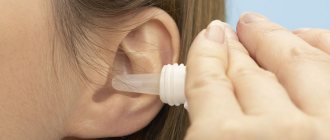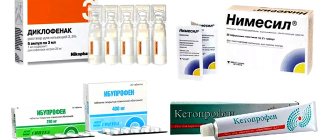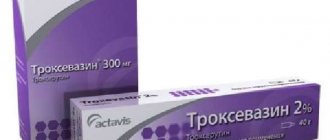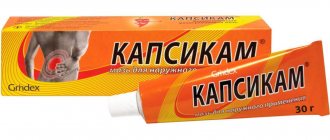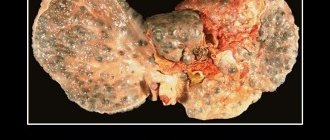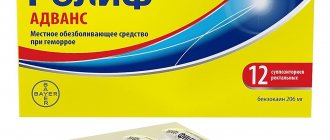Viruses are constantly present in the environment, and they are carried by millions of people across the planet.
Most people do not attach special importance to the emerging disease caused by viruses, in the hope that the immune system will cope on its own. Yes, the human immune system is able to defeat them, but it is too late when another, more serious infection appears in the weakened body and complications arise. In addition, lifelong immunity is developed only to a small number of viruses; the rest, for example, the herpes virus, constantly mutate, and the body has to defeat them again and again.
When choosing medications, consider the following features:
- release form;
- presence of contraindications;
- patient's age;
- price of medicine.
For example, it is more convenient for children to use drops or suppositories, and a neutral or pleasant taste of the drug is preferable. Do not forget about the patient’s age - the dosage of the drug may depend on this. Antiviral medications do not have to be expensive; you can buy good tablets or syrup without hurting your wallet.
Symptoms of the disease
Most colds, regardless of the cause, have similar symptoms.
Characteristic signs of ARVI are:
- increase in body temperature to subfebrile levels (37-38 ° C);
- cough;
- runny nose;
- headache;
- a sore throat.
In many cases, the main symptoms can be supplemented by pronounced signs of intoxication: nausea, accompanied by bouts of vomiting, and stool disturbances.
The symptoms of influenza have some differences from the symptoms that appear with other respiratory infections. However, they do not always occur. With normal functioning of the immune system or infection with a weak type (strain) of the virus, the manifestations of influenza and ARVI will be identical.
The main symptom for most illnesses caused by influenza infection is a high temperature for 3-5 days.
An increase in temperature above subfebrile levels for more than 5 days indicates the development of complications and the addition of a secondary infection.
ARVI is characterized by sudden onset, a sharp increase in body temperature, chills, and weakness. A runny nose, dry cough, sore throat and body aches usually appear on the second day after the onset of the disease. Starting from the fourth or fifth day, the temperature subsides, but the symptoms become more pronounced.
Influenza is characterized by mild muscle pain and aching joints, which can occur both at an early stage of the disease and somewhat later, after a significant increase in temperature. Compared to ARVI, respiratory symptoms with influenza are less pronounced. For example, when coughing, a runny nose, accompanied by swelling of the nose and sneezing, may be completely absent. The flu is accompanied by pain when moving the eyeballs, dry mouth, and fever. The skin on the patient's face acquires a reddish tint, the lips become bright and dry.
The course of severe forms of influenza is often complemented by the appearance of spider veins on the body, various types of bleeding, the occurrence of delusional states, and impaired consciousness. Sometimes the pathology is complicated by diseases such as bronchitis, otitis media, pulmonary inflammation, etc.
Immunomodulators and immunostimulants - a list of inexpensive and effective drugs
Immunostimulants boost the human immune system, strengthen the body's defenses, improve the production of immune bodies and make it possible to quickly overcome infection. There are several hundred drugs with an immunostimulating effect, and the most famous are based on human interferon. They act more gently, stimulating the production of endogenous interferon.
List of drugs:
- Viferon.
- Ingaron.
- Grippferon.
- Avonex.
- Algeron.
Inexpensive immunostimulants are created from natural ingredients - Immunal, Imudon, Aloe injections, Tinctures of Eleutherococcus, Echinacea and ginseng. They act more gently and safely, but are more suitable not for treatment, but for the prevention of colds.
Immunomodulators sometimes include vitamin and mineral complexes necessary for the body to produce immune cells, as well as enzymes and sorbents that cleanse the body of toxins, which allows all organs and systems to work at full capacity. Therefore, taking them protects the body from infection and promotes a speedy recovery.
Attention! When treating colds, experienced doctors include Activated Carbon or Polysorb in the treatment regimen to reduce the symptoms of intoxication and speed up all processes in the body.
Causes of the disease
Any virus, including influenza, is transmitted by airborne droplets. Thus, an absolutely healthy person can contract an infection after contact with a sick person. You can become infected with ARVI or influenza through shaking hands, kissing, touching common objects, etc. The influenza virus exhibits resistance, persisting for a long time in the external environment. The source of infection can be not only humans, but also animals and birds.
The most common causes of ARVI are:
- parainfluenza viruses;
- influenza A, B and C types;
- rhinovirus;
- adenovirus;
- reovirus.
Colds most often affect older people, especially if their immune system is weakened.
Incubation period
The incubation period begins after the virus enters the blood.
Its duration varies from 2 to 5 days depending on the type of infectious pathogen.
At the onset of the disease, the virus multiplies in the nasal cavity, nasopharynx, and larynx and is accompanied by pain in the eyes, sore throat, runny nose and dry cough.
During the incubation period, there is usually no increase in temperature. Sometimes the gastrointestinal mucosa is involved in the pathological process.
First signs
The first signs of a cold caused by a virus are malaise and weakness.
Symptoms are usually accompanied by:
- pain, soreness and dry throat;
- increased body temperature;
- pain in the eyes;
- runny nose;
- sneezing.
At the onset of the disease, there may be an increase in regional lymph nodes, inflammation of the laryngeal mucosa, accompanied by a change in the timbre of the voice, lacrimation, runny nose and cough.
With flu and colds, most patients experience sleep disturbances. In some of them, chronic herpes worsens, which is manifested by the appearance of characteristic rashes on the lips, which are blisters with a liquid composition inside.
After the virus enters the blood, the general symptoms are supplemented by signs of intoxication of the body: chills, muscle pain, headache, and aching joints.
Activation of the immune response promotes the production of antibodies to the virus. This leads to the purification of blood and lymph and the disappearance of symptoms of intoxication. The beginning of recovery in an uncomplicated form of ARVI is indicated by a wet cough with sputum discharge and the disappearance of signs of inflammation during a runny nose.
Risk factors
People with reduced immunity are most often exposed to any colds, which include primarily the elderly, children, and pregnant women. The cause of a cold, unlike the flu, is its own microorganisms, the activation of which occurs during the development of the pathological process. In a weakened state, in order to catch a cold, severe hypothermia of the body is enough.
A decrease in protective functions increases the likelihood of patients contracting influenza infection. According to statistics, the flu epidemic occurs in the winter season (most often in February).
Antiviral drugs for acute respiratory viral infections, acute respiratory infections, colds and flu for children
As soon as a child develops cold symptoms, parents begin to give him medicine, without thinking that most antiviral drugs cannot be taken by children under a certain age.
When choosing a children's drug, you cannot rely on the price or reviews of friends - you need to know how effective the medicine is, how it works and how to take it correctly. Therefore, to choose antiviral drugs for children, you need to visit a pediatrician and listen to his prescriptions.
List of effective antiviral drugs for children under one year of age
In children of the first year of life, the immune system does not work fully, so doctors recommend that young mothers avoid public places, especially during epidemics. But it is not always possible to protect a child - even by avoiding contact with strangers, any family member can bring the infection.
If a child catches a cold, parents try to treat it themselves, using herbal remedies or homeopathic medicines, considering them the safest. Although they can cause serious harm to the baby’s health. Therefore, it is necessary to select antiviral drugs for children in the first year of life together with a pediatrician.
What antiviral medications can children under one year old take?
- Aflubin drops.
- Grippferon ointment and drops.
- Candles Viferon and Genferon Light.
- Lofilisate Interferon.
- Oscillococcinum.
- Derinat.
- Immunoflazid.
- Anaferon.
Preference is given to Grippferon and Viferon, as the safest and most effective drugs that allow the child’s body to quickly cope with the infection.
The most effective antiviral drugs for children 1–2 years old
After a year, children’s bodies are stronger, so in addition to the medications prescribed to infants, stronger medications may be included in the treatment regimen. These include: Orvirem, Cytovir 3, Tamiflu, Relenza, Ergoferon, Thymogen.
Antiviral drugs for children over 3 years of age
From the age of three, the list of approved antiviral drugs is expanded.
What products are allowed for children over 3 years of age?
- Arbidol.
- Kagocel.
- Groprinosin.
- Influcid.
From the age of four, the doctor can prescribe Cycloferon, Polyoxidonium, Amiksin, Ingavirin 60. For the flu, children from 7 years of age are prescribed Remantadine or Ridostin.
Attention! Drugs prohibited in childhood: Amantadine, Ribavirin, Yodantipyrine due to the high risk of side effects.
Effective antiviral drugs for children 10 years and older
Children over 10 years of age can take all of the above antiviral drugs, in an individually selected dosage. But, if a child of this age easily tolerates a cold, then taking antiviral drugs is not necessary - adequate symptomatic treatment is sufficient.
Drugs by spectrum of action
Treatment of colds requires an integrated approach. Medicines for ARVI in adults are selected depending on the severity of the disease and the age category of the patients, and are aimed primarily at alleviating symptoms.
Antipyretics
With the help of antipyretic drugs, you can quickly bring down a high temperature, which will significantly alleviate the condition of patients with the flu.
To reduce the temperature use:
- Paracetamol is an inexpensive and effective remedy for relieving fever, which has an analgesic and anti-inflammatory effect.
- Fervex is a drug whose main active ingredient is paracetamol. Has a similar spectrum of action.
- Panadol is an antipyretic drug based on paracetamol. It has no side effects, is quite effective and is relatively inexpensive.
- Ibuprofen is an anti-inflammatory and antipyretic drug. Contraindications to its use are stomach ulcers, liver and kidney pathologies.
- Nurofen is an analogue of Ibuprofen.
- Acetylsalicylic acid. The medicine reduces fever well and has an analgesic effect. Contraindications to its use are pregnancy, age under 12 years, poor blood clotting.
Aspirin is included in many fever-reducing medications.
Antiviral
For any cold, doctors often prescribe antiviral drugs. Before using medications, it is important to make sure that the cause of the disease is indeed a viral and not a bacterial infection. Otherwise, the treatment will be ineffective.
The most popular antiviral drugs for the treatment of ARVI in adults are:
- Viferon is a relatively inexpensive drug for the treatment of influenza and ARVI based on interferon. Contains alpha 2b substance, vitamin E and ascorbic acid. Available in the form of suppositories and ointments. Shows effectiveness in the treatment of respiratory diseases, viral hepatitis and herpes. It has practically no contraindications; depending on the dosage, it can be prescribed to children from 3 months.
- Grippferon is an immunomodulator based on leukocyte interferon. Effective for inflammation of the upper respiratory tract caused by a viral infection. Designed to replenish the deficiency of natural interferon.
- Hyperon is a drug produced in the form of suppositories containing immunoglobulins and human interferon. Shows activity against ARVI, influenza, infectious hepatitis and some types of bacterial infections.
- Cycloferon is an immunostimulating drug whose active ingredient is meglumine acridone acetate. Available in tablet form, it has minimal side effects. The medicine is prescribed to children from 4 years of age.
- Remantadine is a direct-acting antiviral drug that is effective against influenza A viruses and tick-borne encephalitis. The medicine is available in syrup and tablet form. The course of treatment using Remantadine is 5 days. In some cases it may be extended to 14 days.
- Tamiflu is a direct-acting etiotropic drug with proven effectiveness, showing activity against pathogens of influenza A and B types, and having the ability to reduce inflammation.
- Arbidol is a popular domestically produced drug, the main component of which is umifenovir. Arbidol stimulates the human immune system and is prescribed for the treatment of respiratory and influenza infections.
Antiviral drugs are selected by the doctor individually.
From the throat
You can reduce inflammation and relieve irritation from a sore throat with the help of modern medications.
The most popular medications are:
- Strepsils are lozenges with a pronounced antiseptic and analgesic effect. To achieve a therapeutic effect, one tablet should be dissolved every four hours. This approach will eliminate a sore throat in four days. The drug can be used for treatment by adults and children starting from the age of five.
- Grammidin - antiseptic absorbable tablets. It is suggested to use two medications 3-4 times a day for a weekly course of treatment.
- Faringosept is a medicine that has a powerful therapeutic effect. Available in the form of lozenges. They are recommended to be used for three days after meals, but no more than 5 pieces per day.
- Inhalipt is an aerosol for topical use based on sulfanilamide and sodium sulfathiazole with the addition of oils. It has an antimicrobial, anti-inflammatory and mild analgesic effect. Irrigation of the oral cavity is performed 3-4 times a day. Allowed for use by children from 3 years of age.
- Miramistin is an antiseptic used for irrigating the oral cavity. Has no contraindications.
- Tantum Verde is an anti-inflammatory drug with an analgesic effect in the form of tablets or spray, used after meals 3 times a day for no more than a week.
You can eliminate inflammation in the throat during colds and flu with the help of decoctions prepared on the basis of medicinal herbs.
For a runny nose
Nasal congestion during a cold brings patients significant discomfort. It can be removed using nasal drops, solutions and ointments.
The most popular of them:
- Nazivin is a vasoconstrictor drop based on oxymetazoline, which allows you to quickly eliminate swelling and nasal congestion for a long time. Depending on the dosage, it can be prescribed to children from birth. The drug should not be used for more than a week, as it is addictive.
- Sanorin is a nasal drop containing eucalyptus oil and vasoconstrictor components. They have a weak therapeutic effect.
- Pinosol is an oil-based medicine for the common cold, the action of which is aimed at fighting the virus, and not at eliminating congestion. Can be used by pregnant women.
- Vibrocil - medicinal nasal drops with antibacterial activity, antihistamine, vasoconstrictor and decongestant effect.
- Nasonex is a decongestant nasal spray with a pronounced antihistamine effect.
- Isofra - spray has an antimicrobial effect in case of prolonged runny nose and promotes final recovery.
- Derinat is an antiviral drop that does not contain interferon. They have a regenerating effect, antifungal and antibacterial activity.
You can get rid of a runny nose much faster if you rinse your sinuses with a solution based on natural sea salt (Aquamaris, Aqualor, Marimer and others).
Against cough
At an advanced stage of the disease, patients are prescribed drugs that have an antitussive effect and promote sputum discharge.
The most popular among them are:
- Ambrobene;
- Stoptussin;
- ACC;
- Lazolvan;
- Ambrohexal;
- Gerbion;
- Bromhexine;
- Bronchipret;
- Bronholitin.
The selection of cough remedies is carried out individually, depending on the age category of the patient.
Vitamins
When treating colds and flu, patients are prescribed vitamins that help strengthen the body's defenses. Activation of the immune system promotes the production of antibodies, the action of which is aimed at fighting the viral infection.
The main vitamins necessary for the treatment of acute respiratory viral infections and influenza:
- Vitamin C, which is a natural antioxidant that activates the immune system. Ascorbic acid helps destroy viruses and is necessary for the differentiation of immune cells.
- B vitamins (1, 2, 5, 6, 9, 12) support immune activity and antibody synthesis.
- Vitamin A ensures the strengthening of mucous membranes.
- E, K, H influence the passage of biochemical reactions that enhance the body's protective functions.
The body must also receive microelements to ensure the normal functioning of the immune system.
This:
- iodine;
- iron;
- zinc;
- selenium;
- manganese;
- molybdenum.
Therefore, when selecting vitamin-mineral complexes, it is recommended to pay attention to their composition.
Patients should eat more vegetables, fruits and herbs containing vitamin C. These are tomatoes, green onions, dill, parsley, all types of citrus fruits and apples.
Complex etiotropic drug Amiksin
The complex etiotropic drug Amiksin is the best remedy for colds, with the help of which the body ensures the production of its own interferons. It is an immunomodulator with antiviral activity, thanks to which it is possible to enhance the immune response to viruses.
Amiksin does not contain foreign interferons and is active against influenza, adenovirus, herpesvirus and rhinovirus infections. The medicine has an effective immunomodulatory and antiviral effect, suppresses the translation of viral proteins, and prevents the spread of infection in the body.
The drug is quite expensive. The price for it can vary from 200 to 600 rubles per package. It comes in the form of tablets for oral use, which is very convenient. The course of treatment for adult patients is developed individually.
Treating colds with homeopathic remedies is an alternative way to eliminate problematic symptoms. The method is based on the principle of similar treatment, in which the prescribed drug causes a medicinal disease in a person, designed to defeat a natural one.
If symptoms such as cough, runny nose, or fever appear, the following homeopathic medicines are prescribed:
- Aflubin has anti-inflammatory, immunomodulatory, antipyretic, and detoxification effects.
- Oscillococcinum is used to prevent and treat influenza and colds.
- Cinnabsin is used for sinusitis.
- Rhinital is active against rhinitis.
- Tonsilotren is prescribed for sore throat.
- Rengalin helps get rid of cough.
- Influcid is used to treat the upper respiratory tract.
These medications cope with the symptoms of colds and acute respiratory viral infections, since they all have pronounced antiviral activity.
Polyoxidonium
Polyoxidonium is a good Russian antiviral drug. The mechanism of action differs from that of the previous participants in our review. It does not directly affect viruses, but increases the activity of the human immune system.
The main active ingredient of the drug is azoximer bromide. This is an organic compound - a polymer, which was developed by domestic scientists. Azoximer bromide increases the activity of the body's immune cells (in particular, it makes the course of oxygen-independent processes in leukocytes more intense. As a result, they better fight cells affected by a viral pathogen.
Principles of treatment
You can get rid of the alarming symptoms of the flu faster by adhering to some rules.
For such patients the following is provided:
- compliance with bed rest;
- ensuring peace, especially in the midst of illness;
- drink plenty of fluids, herbal tea, compotes, still mineral water are suitable;
- maintaining cleanliness in the room, maintaining the temperature and required air humidity;
- daily rinsing of the nose with saline solutions and rinsing the mouth with anti-inflammatory drugs and decoctions;
- carrying out antiviral symptomatic therapy aimed at fighting infection and restoring the body's defenses;
- taking enough vitamins.
During treatment, it is advisable for patients to adjust their diet. It is recommended to include more fruits and vegetables in the daily menu and limit the consumption of indigestible foods. It is imperative to eat onions, garlic, drink berry compotes and fruit drinks, as well as vitamin teas with honey and lemon. Raspberry, cranberry and lingonberry jam will be useful for the flu. It is recommended to make meals in fractions. It is important not to overeat during treatment, so that all the body’s reserves are aimed at fighting the disease.
As for antibiotics, it is not advisable to take them for influenza and ARVI, since these drugs do not have antiviral activity.
Diseases that occur in a mild form can be cured at home. It is recommended that the patient be allocated a separate room, isolating him from other family members.
What the Ministry of Health recommends
Let us note once again that there are much fewer antiviral agents with proven effectiveness than antibiotics. Despite this fact, at the beginning of the pandemic there was a loud advertising campaign for Arbidol; in recent months, reports have increasingly appeared about new drugs that were invented specifically to combat Covid - Coronavirus and Areplivir. And rumors are spreading among the people about the omnipotence of Ribavirin.
It is important to understand that there is no cure for coronavirus in the world. They were not found in the Russian Ministry of Health, whose methodological recommendations state the following:
The currently available data on the results of treatment with various drugs do not allow us to make an accurate conclusion about the effectiveness or futility, therefore their use is allowed after approval by a special commission in the prescribed manner. A prerequisite for this is that the potential benefit for the patient exceeds the risk.
Traditional methods
In most cases, the treatment of colds is not complete without the use of traditional methods. There are a large number of products whose effectiveness has been proven in practice.
Here are a few of them:
- Medicine against influenza. You need to take a large onion, cut it in half and inhale the essential vapors for 5 minutes. Repeat the procedure at least three times a day.
- Garlic tincture against viral infection. To prepare it, take 100 g of garlic, chop it, pour in 250 ml of high-quality vodka and leave to steep for 24 hours. Directions for use: spread two drops of the product on the tongue and swallow. The course of treatment is 5 days.
- Immunity booster. You should take 3 tbsp. l. pistachio kernels, grind them to a powder and pour 1.5 cups of boiling water. Take 3 tbsp. l. 4 times a day, regardless of meals.
- Motherwort herb for the flu. To obtain a therapeutic effect, it is recommended to take 1 g of powdered herb 4 times a day, washed down with boiled water.
- Anti-inflammatory decoction based on medicinal herbs. You should take equal parts of beech herb, sage and medicinal chamomile and mix. Brew the mixture at the rate of 1 tsp. per glass of boiling water. Drink 3-4 glasses a day.
- Cherry decoction to reduce fever. Pour 100 g of dried cherries into 0.5 liters of water and evaporate over low heat under a lid until 1/3 of the volume disappears. Take 2 tbsp at high temperatures. l.
Vitamin tea with lemon and honey will help you get back on your feet faster after the flu.
Ingavirin
Ingavirin is an immunomodulating drug. The main active ingredient is pentanedioic acid imidazolylethanamide, which promotes more intense red blood cell production. It also increases the level of interferon in the blood, which prevents the self-reproduction of the pathogen. The medicine does not have a direct effect on viruses - it only mobilizes the human body’s own forces to fight the pathogen.
Take 1 tablet (90 mg) for a week.
The drug has contraindications, including:
- drug intolerance;
- pregnancy;
- breastfeeding;
- age up to 18 years.
There are no side effects. In very rare cases, an allergic reaction may occur.
Ingavirin costs approximately 500 - 600 rubles.
Ingavirin
Features of gentle therapy
The organization of gentle therapy, the need for which arises for individual patients, requires special attention. In this case, we are talking about elderly patients, people suffering from liver diseases, and women during pregnancy and breastfeeding.
During pregnancy and lactation
Almost all pregnant women have a severely weakened immune system. Therefore, expectant mothers have a much greater chance of catching a flu infection. For prevention purposes, doctors recommend that they get vaccinated.
It should be borne in mind that a woman’s illness during pregnancy can affect the condition of the unborn child. Therefore, young mothers are advised to strengthen their bodies, eat more vitamin-rich foods, and walk in the fresh air more often.
Most medications that can be prescribed to ordinary patients for influenza or ARVI are prohibited for pregnant women.
List of approved medications for women suffering from colds during pregnancy and lactation:
- antiviral Oxolinic ointment;
- antiviral suppositories Viferon;
- a homeopathic medicine aimed at eliminating the main symptoms - Oscillococcinum;
- You can drip Pinosol into your nose, wash the mucous membranes with saline solutions (Aqualor, Aquamaris, etc.);
- from vasoconstrictor drops, after consultation with a doctor, you can use children's drugs Nazivin, Xylen, etc.;
- To eliminate inflammation in the throat, gargling with Miramistin is prescribed.
Pregnant women are also recommended to gargle with calendula tincture.
Features in elderly patients
Treatment of infectious diseases in older people is much more difficult. Elderly patients have an increased likelihood of developing serious complications, such as pneumonia, sinusitis, pharyngitis, and otitis media. This category of people is at risk for the incidence of colds.
Prevention to combat the virus for elderly patients involves:
- timely treatment of infectious diseases;
- maintaining household hygiene;
- use of antiviral therapy and taking vitamins;
- isolation during treatment.
If complications develop, patients with ARVI may experience alarming symptoms: headache, runny nose, impaired external respiration, cough.
Manifestations indicate the addition of a bacterial infection, which requires adjustment of treatment. In case of development of pulmonary pneumonia, sinusitis or otitis, the main therapeutic direction will be antibiotic therapy.
For a diseased liver
A special approach is required for the treatment of colds for people with liver disease. The selection of medications, including antiviral ones, should be carried out taking into account contraindications for use.
Liver patients can be given:
- Kagocel;
- Arbidol;
- Antigrippin;
- ascorbic acid;
- Paracetamol.
They will benefit from cleansing the liver during treatment. To do this, patients should be given oatmeal with honey twice a day, morning and evening.
Mechanism of action of antibiotics
Medicines from this group are widely used in medicine. But their use has a number of features that must be taken into account in order for the therapy to be effective and the risk of side effects to be minimized.
These are special drugs that act on pathogenic microorganisms. The main purpose of antibiotics is the complete destruction of pathogenic bacteria. This group of drugs has two mechanisms of action:
- Bactericidal involves damaging the cell membrane of harmful microorganisms, which leads to their death.
- Bacteriostatic is based on the effect on protein synthesis, stopping the proliferation of harmful microorganisms. Drugs with this effect are used not only for treatment, but also for the prevention of infectious diseases.
High-quality antibiotics should block pathogenic bacteria without harming healthy cells. This is possible due to the special property of drugs in this group - selective toxicity. The exception is especially strong antibiotics that have side effects.
Possible complications
ARVI is characterized as catarrhal inflammation of the upper respiratory tract caused by pneumotropic viruses. In some cases, a disease of viral etiology is complicated by a bacterial infection.
With severe influenza or ARVI, the likelihood of developing complications increases:
- radiculoneuritis;
- inflammation of the middle ear;
- meningoencephalitis;
- neuritis;
- rhinitis;
- sinusitis;
- pharyngitis;
- tonsillitis;
- pulmonary inflammation.
Each of the above diseases requires separate treatment.
What antiviral drugs are effective for preventing influenza, acute respiratory viral infections, acute respiratory infections and colds?
The human body is capable of fighting viral infections on its own if it is completely healthy. But even a healthy person cannot be completely protected from colds and flu, so it is necessary to maintain immunity.
Experts from all countries consider the best prevention to be a healthy lifestyle, which includes giving up bad habits, eating well, playing sports, and walking in the fresh air. A prerequisite is no contact with infected people.
These rules do not always allow you to avoid infection, and while a cold is not so dangerous, the flu can cause the most severe and life-threatening complications. Therefore, during epidemics, patients with poor health need to take anti-influenza drugs for preventive purposes.
It is recommended to take anti-influenza tablets that destroy the virus and suppress its reproduction:
- Amantadine.
- Arbidol.
- Remantadine.
- Ingavirin.
- Oseltamivir.
Anti-influenza drugs for the prevention of influenza are prescribed in exceptional cases during epidemics to prevent infection or make the patient feel better. But we must remember that their regular use can lead to the development of resistance of the influenza virus to the drug and using one anti-influenza drug constantly is unacceptable.
Antiviral medications for the prevention of acute respiratory viral infections can be taken by adults and children with chronic diseases after contact with an infected person. Early prevention allows you to avoid infection and the development of complications from the respiratory tract and ENT organs.
Prevention
Any disease, including colds, is easier to prevent than to treat. First of all, patients should observe household hygiene, regularly do wet cleaning, ventilate rooms, and maintain the necessary humidity in the room.
Every time after going outside, you should thoroughly wash your hands with soap, and during an epidemic, also rinse your nasal passages.
In addition, it is recommended to eat a balanced diet, eat fresh vegetables and fruits, especially citrus fruits, drink plenty of fluids and vitamin teas with honey.
The development of the disease can be prevented with the help of immunomodulatory drugs. Immunal, Arbidol, Amizon have a good effect.
Vaccination
An effective preventive measure against influenza is routine vaccination. Vaccinations are primarily indicated for people over 65 years of age, including heart patients, patients suffering from kidney disease, cancer patients and those who are often treated in a hospital.
Even in the summer, scientists make a forecast about the likely strain of influenza that will begin to spread in Russia in the winter, based on cases of disease in other countries. Before the fall, a vaccine against a specific type of influenza virus is created and vaccination begins, from the moment of which at least 1 month must pass until the onset of the epidemic.
Vaccination helps to avoid contracting an influenza infection, and if the body is infected with a virus, it helps to transfer the disease more easily and without complications.
The most common vaccines are:
- Flu;
- Begrivak;
- Fluarix;
- Agrippal.
Acyclovir
Acyclovir is an antiviral drug that acts at the molecular level. The mechanism of action is that after the active substance enters the body, it synthesizes chemical structures that resemble the affected DNA. The virus mistakenly invades them rather than actual cells. After this, it tries to begin self-reproduction. However, as a result, it is not viral proteins that are synthesized, but completely different chemical compounds that are successfully destroyed by immune cells - phagocytes.
Why self-medication is dangerous
Despite the abundance of medications that can be purchased in pharmacies without a prescription, resorting to self-treatment if you suspect an influenza or viral infection is not recommended. Only the attending physician knows how to treat influenza and ARVI in adults correctly. Even with a correct diagnosis and the identified type of pathogen, there is a possibility of relapses, especially if the disease has not been fully treated.
Drugs intended to eliminate viral infections may not be useful for diseases caused by bacteria. Incorrect treatment often causes complications, so therapy should be carried out under the supervision of a therapist.
Video
Antiviral drugs for acute respiratory viral infections, acute respiratory infections, colds and flu for adults
The list of antiviral medications for adults is endless. If there are no individual contraindications to taking the drug, then the doctor can prescribe any medicine or its generic.
But an adult’s body is stronger and is able to cope with ARVI on its own if the disease is mild or moderately severe. In this case, only symptomatic treatment is necessary - taking anti-inflammatory drugs, cough and runny nose medications, and using local remedies to sanitize the nasopharynx. For severe colds or flu, treatment is impossible without antiviral drugs.
How to treat colds and flu in adults?
- Arbidol.
- Groprinosin.
- Amantadine.
- Ribavirin.
- Kagocel.
- Amiksin.
- Polyoxidonium.
- Remantadine.
- Tamiflu.
- Altabor.
Adults are often prescribed antiviral tablets and powders for preparing a solution, which have a complex effect - reducing inflammation, lowering temperature and suppressing the activity of viruses. These include: Anvimax, Antigrippin and Antigrippin Maximum.
Coronavirus vaccine
Using a similar principle, it was difficult to create a vaccine against coronavirus. Since from the onset of diseases in China in December 2019 until the first cases of COVID-19 were registered in Russia, there were already 30 genotypes of coronavirus. It is clear that at the end of 2020 there were much more genotypes. Because the coronavirus is constantly mutating.
Within the group of coronaviruses, each one is significantly different from the other. Different strains of the virus are also associated with different symptoms in patients with mild or moderate severity of the disease.
Therefore, the created coronavirus vaccine should ideally protect against all viral genotypes, or at least several of them. Virologists and microbiologists around the world are working on this. Time will tell how reliable protection the Gam-COVID-Vac - Sputnik 5 vaccine will provide.
It sometimes takes a decade to invent vaccines. As with HIV, after years of research, a vaccine has still not been created.


